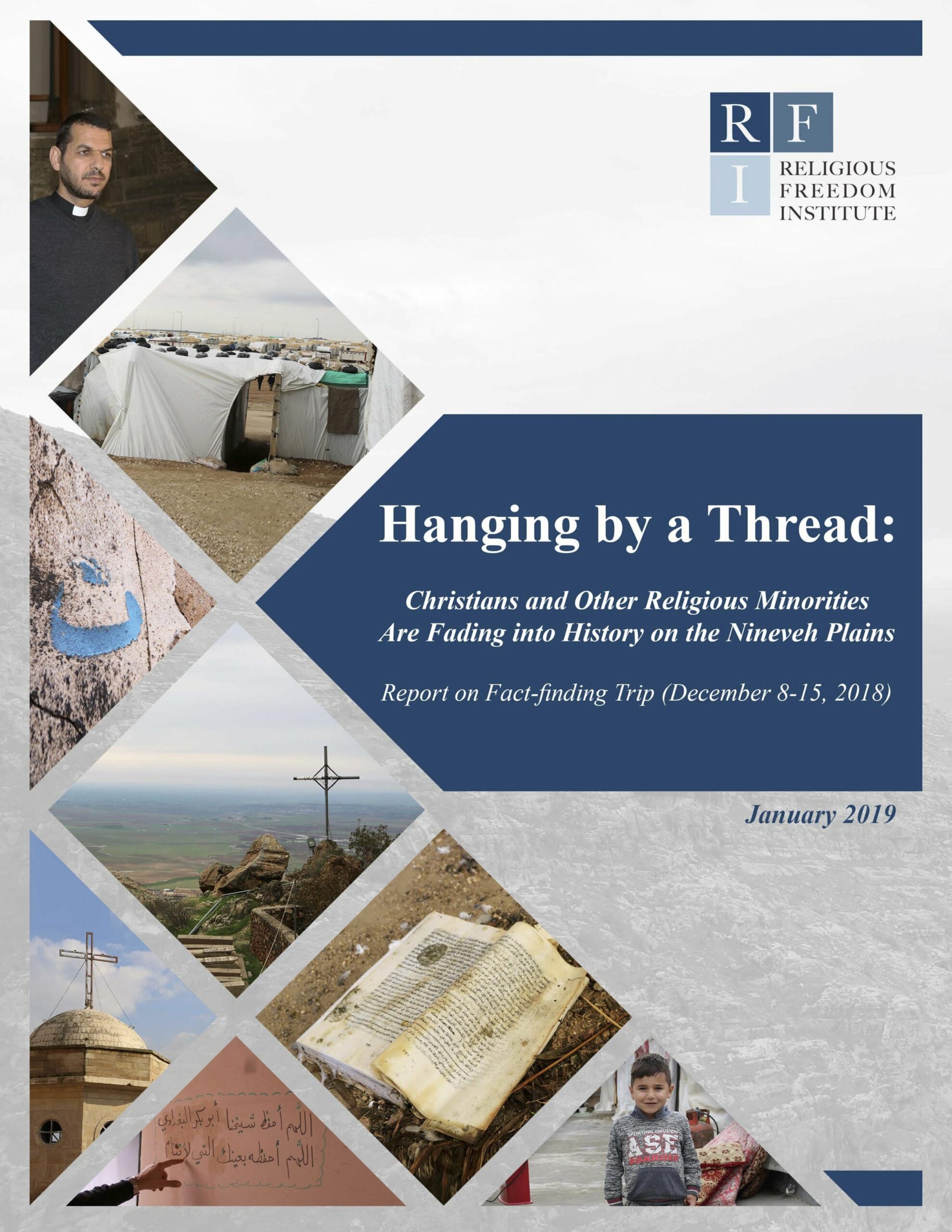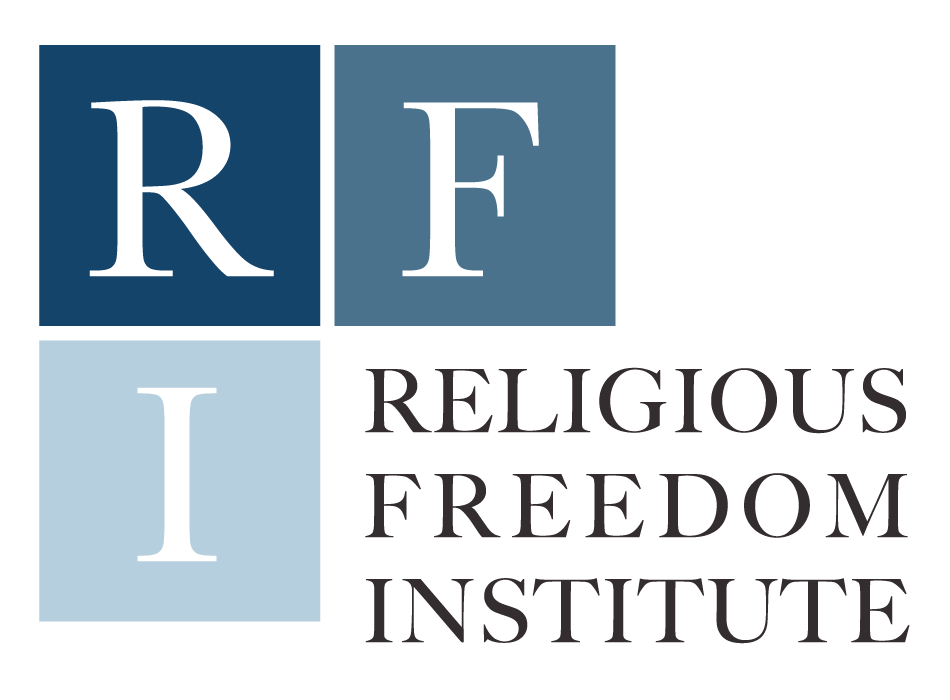January 11, 2019, Washington, D.C. — The Religious Freedom Institute (RFI) today issued a report, Hanging by a Thread: Christians and Other Religious Minorities Are Fading into History on the Nineveh Plains.
The report, based on a trip to Iraq’s Nineveh Plains last month, outlines the dire conditions in northern Iraq for Christians, Yazidis, and other religious minorities. The report underscores the profound security and economic challenges religious minorities face in Sinjar and the Nineveh Plains and points to a looming threat to both Iraqi and American security.
Many who remain in Iraq after being driven from their homes more than four years ago are still displaced. International assistance has been far more effective in facilitating the return of majority communities than it has been for religious and ethnic minorities. For those minorities who have been able to return to their homes, the lack of jobs and fragile security situation continue to imperil their long-term future in the country.
“The international community, especially the United States, must act now to bring pressure on the Iraqi government to stop Shiite colonization, provide jobs, and ensure local security in order to stop the bleeding away of these ancient communities, and again make possible their vital contributions to Iraq. While small signs of hope exist, the very survival of these communities is at stake, and with them critical interests of the United States,” said Kent R. Hill, RFI Executive Director.
If Iraq’s religious minorities are finally compelled by security and economic concerns to leave Iraq, the genocidal work of ISIS will have been completed, and the opportunity for securing pluralism in Iraq will disappear. The return of Islamist terrorism will become more likely. The growing presence of Shiite militia will, as it has in the past, drive Iraqi Sunni to support groups like ISIS, which is already seeking to regain its foothold in the Nineveh Plains. Pressure on fragile minorities throughout the Middle East will increase.
Following a unanimous Congressional vote, President Trump signed into law on December 11, 2018 the Iraq and Syria Genocide Relief and Accountability Act of 2018. The law mandates that American assistance reaches communities targeted by ISIS for genocide and addresses the factors driving them to flee.
 RFI leadership met recently with senior U.S. Government officials to present the findings of the report and urge immediate action on behalf of religious minorities in Sinjar and the Nineveh Plains. As the report puts it, the United States “has been very slow to grasp the close connection between religious pluralism and its own national security.” When religious pluralism takes root in the social fabric and legal framework of a country, greater stability ensues, creating inhospitable conditions for ISIS and other extremists. When the United States successfully promotes religious pluralism in an area otherwise susceptible to extremist control, security is strengthened.
RFI leadership met recently with senior U.S. Government officials to present the findings of the report and urge immediate action on behalf of religious minorities in Sinjar and the Nineveh Plains. As the report puts it, the United States “has been very slow to grasp the close connection between religious pluralism and its own national security.” When religious pluralism takes root in the social fabric and legal framework of a country, greater stability ensues, creating inhospitable conditions for ISIS and other extremists. When the United States successfully promotes religious pluralism in an area otherwise susceptible to extremist control, security is strengthened.
As the report makes clear, the United States has a range of tools at its disposal, including those provided by the law. Now it needs to act fully and quickly.
Hill, Kent R. and Jeremy P. Barker. Hanging by a Thread: Christians and Other Religious Minorities are Fading into History on the Nineveh Plains. Religious Freedom Institute, 2019.

Media Contact:
Jeremy P. Barker
media@religiousfreedominstitute.org
202-838-7734
www.religiousfreedominstitute.org
The Religious Freedom Institute (RFI) works to secure religious freedom for everyone, everywhere. The RFI is a non-profit, non-partisan organization based in Washington, D.C.
THE RFI BLOG

Does Southeast Asia Lead the World in Human Flourishing?

RFI Leads Training Session on Religious Freedom Law and Policy for U.S. Army War College

Oral Argument in Charter School Case Highlights Unconstitutional Motives Behind OK Attorney General’s Establishment Clause Claim

Largest Longitudinal Study of Human Flourishing Ever Shows Religion’s Importance

Keys To Human Flourishing: Faith And Relationships Outweigh Wealth
CORNERSTONE FORUM

Reaffirming Religious Freedom: Bridging U.S. Advocacy and Iraq’s Constitutional Framework

Political Polarization, Same-Sex Marriage and Religious Liberty

Bridging the Gap Between International Efforts and Local Realities: Advancing Religious Freedom in the MENA Region

Challenges to Religious Freedom in Iraq and the Critical Need for Action

